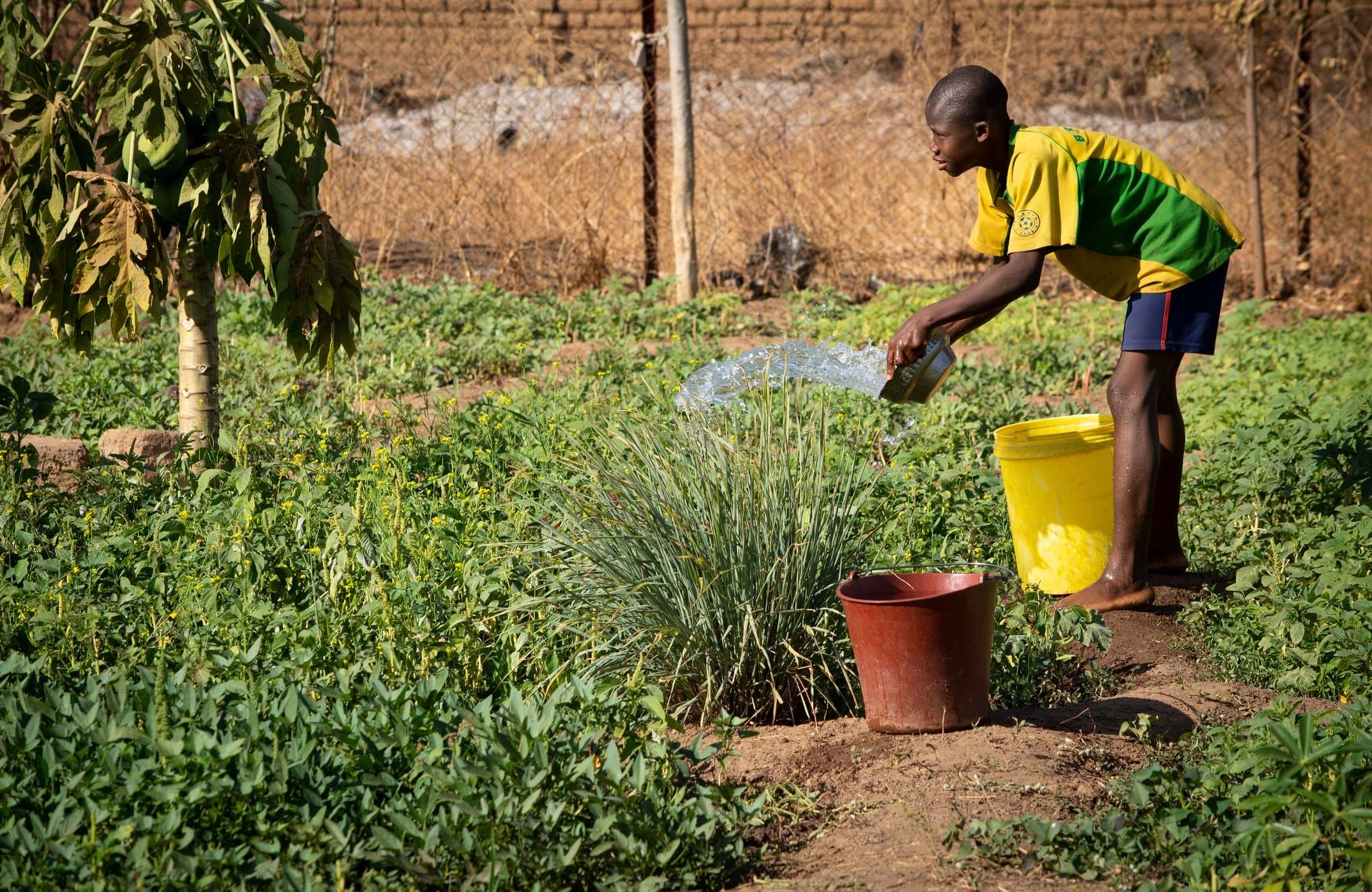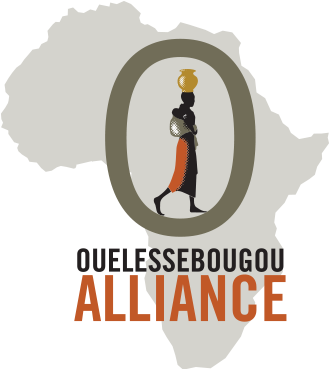
Support Nutrition & Wells
We partner with villagers in Ouelessebougou to fight the issues of malnutrition and drought with sustainable projects like wells, gardens and nutrition training.
Drinking & Garden Wells
Access to water supply is a fundamental human right. Since 1986, we have partnered with villages to construct more than 150 drinking and garden wells in the Ouelessebougou region. Structures have varied over the years to include hand-dug, concrete, pump and solar panel wells. Village Health Councils also provide training on sanitation and clean water.
Nurturing Nutrition Programs
In 2014, we developed an agricultural program specifically aimed at village women and children. The Nurturing Nutrition program provides education on nutrition and gardening practices so women and children can work together to produce healthy food for their families.
Why are Nutrition initiatives important in Mali?
Mali is a landlocked sub-Saharan country with an unpredictable rainy season and long months of dry, hot weather. The country’s growing population, political unrest and irregular rainfall has increased the pressure on water resources. Mali relies heavily on agriculture, which employs 90 percent of the country’s rural population. Lack of resources and education lead small farmers, who are most often women, to not be able to harvest the most productive yield or to plant crops that are not suitable in nutritional value.
Our water and nutrition initiatives come out of the Healthy Village Workshops where the villagers themselves identify the needs and come up with innovative solutions.
Ouelessebougou Women’s Garden
Tucked in the center of town of Ouelessebougou is a garden oasis known as the OA Women’s Garden. We support this community garden where over 80 women and their families work in individual plots. Our Mali staff collaborates with the women to provide training and resources to cultivate a productive garden. Past projects have including constructing pump wells, fences, a garden shed and installing a solar pump well.
We train the women on efficient gardening and composting practices, increasing crop production and incorporating their garden produce in their family’s diets. They are taught how to manage products for consumption, sale and preserve products they cannot sell. The goal is to increase production so families have more to eat and have enough left over to make extra income to send their children to school. Many women work alongside children and teach them what they’ve learned about gardening, composting, harvest cycle, increased crop production and nutrition.
Now, the women from the OA Women’s garden sharing their expertise and teaching others from Alliance partner villages like Bassa and Famana. They have become leaders who can educate other women on gardening and nutrition.





